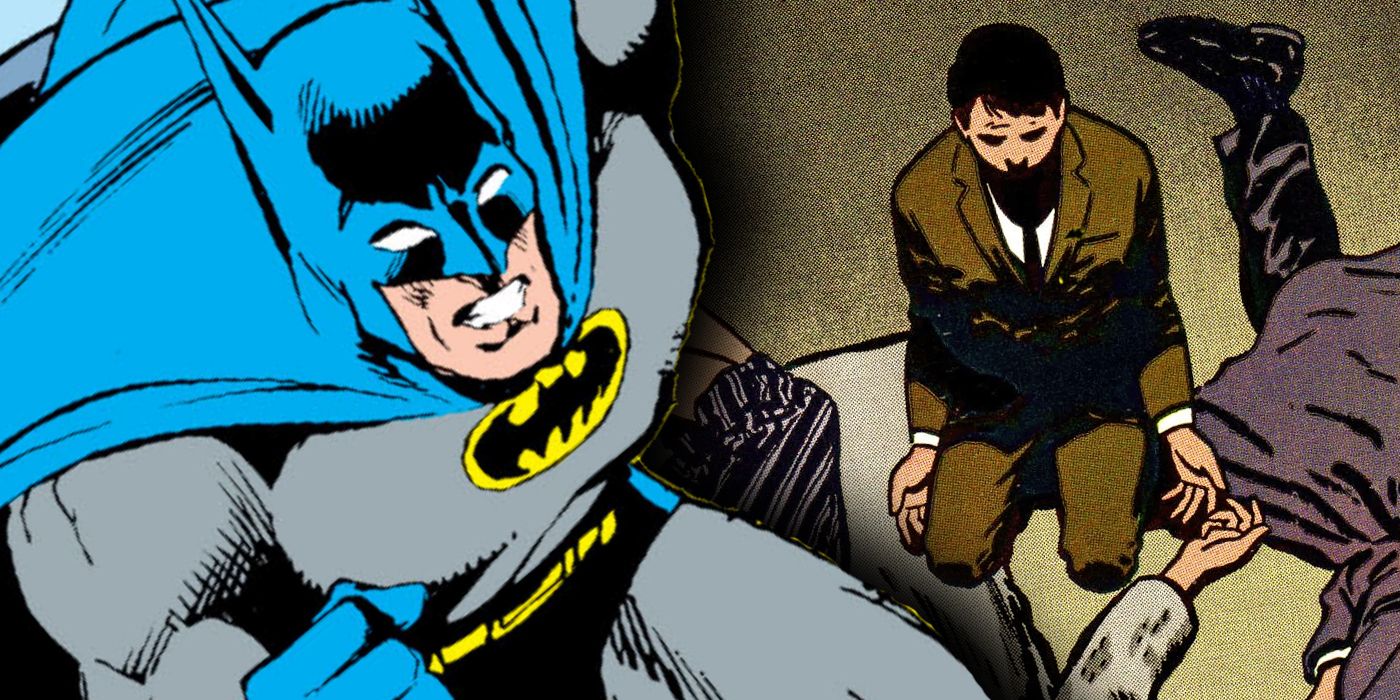
Today, we look at whether Batman's parents being murdered in front of him was the only way that Bruce Wayne would have ever become a superhero.
This is "Always Kind of Wondered," a feature spotlighting instances from comics where a comic book writer has clearly said, "Hey, why doesn't Character X ever do Action Y?" The sort of things that typically occur when comic book fans grow up to become comic book writers, which wasn't really a thing until the mid-1960s.
Last year, in honor of the passing of the great comic book writer, Denny O'Neil (I recently did an interview with Denny's son, Larry, about a heartfelt tribute to his father that Larry wrote with artists Jorge Furnes and Dave Stewart that will be appearing in the Green Arrow 80th Anniversary Super Spectacular later this month. You can check that out here), I wrote a series of spotlights on O'Neil's brilliant comic book writing.
One of the issues that I spotlighted was the classic "There Is No Hope in Crime Alley" from Detective Comics #457, with art by Dick Giordano.
In that story, O'Neil revisited Batman's origin for, I believe, the 37th anniversary of Batman's debut or something like that. While today, revisiting Batman's origin is something that happens in every other Batman comic book, it was a novel idea at the time. The new wrinkle that O'Neil introduced was that Batman commemorates his parent's death every year by visiting Crime Alley, but so does an old woman named Leslie Thompkins.
O'Neil reveals that Thompkins came to young Bruce Wayne after the murders and soothed him in his time of need and made him feels as though everything is not quite as awful as you would normally think that it was under the circumstances. The angle that O'Neil is holding on to is the idea that Bruce Wayne lost all of his hope after those murders and that, in the years since, Batman has just been about vengeance.
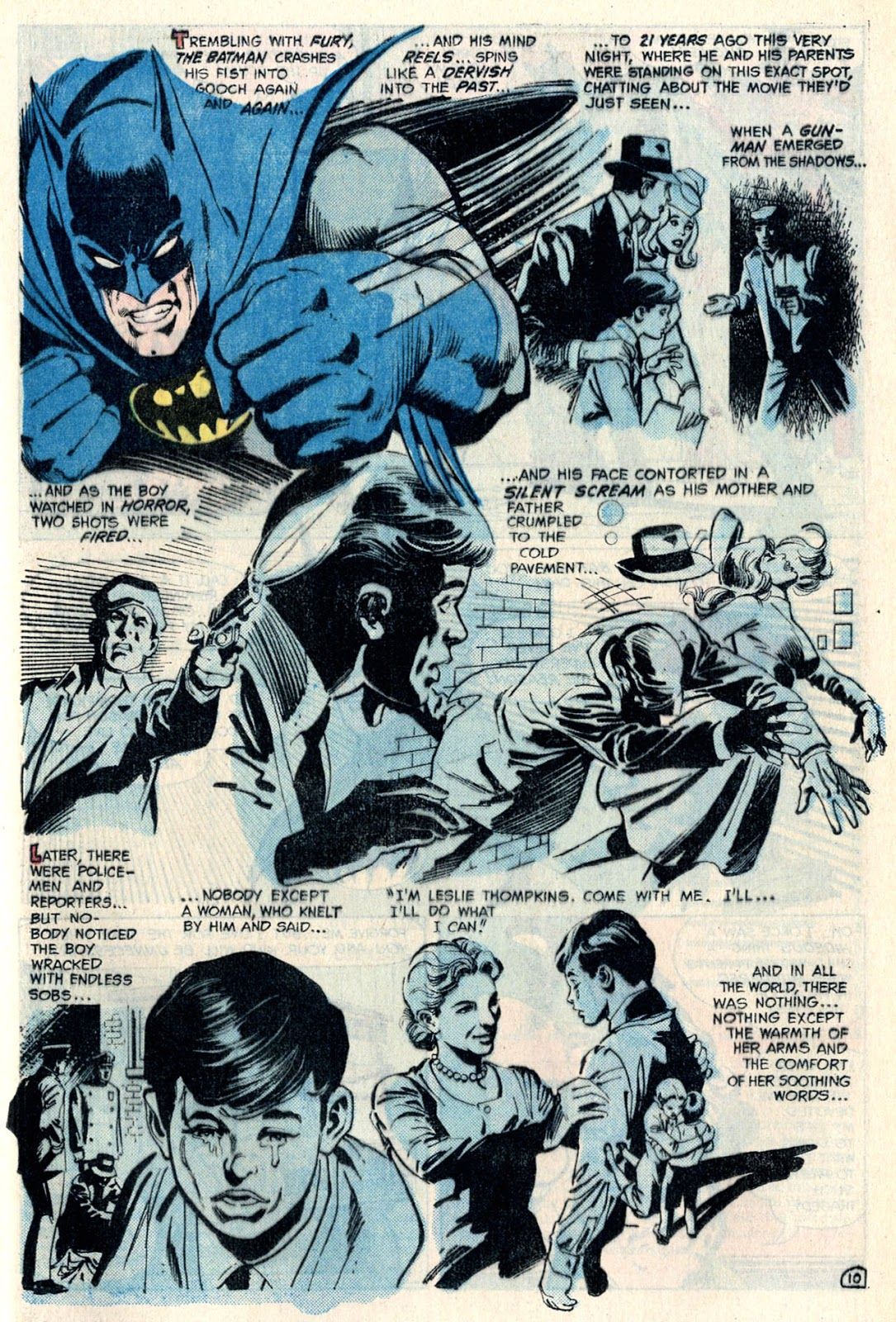
However, you can see that Leslie Thompkins turned young Bruce's mind around on that approach to the world. She literally gave him hope in that moment and that was one of the most powerful things that she could do at that time. The issue, of course, is that a number of years have passed. Bruce is now an adult and, you know, a dark vigilante who dresses like a bat. Has he lost the hope that Thompkins gave him when he was just a child? Or is he just the dark spirit of vengeance?
Thompkins meets Batman and (ostensibly not knowing that he is Bruce, although you can easily argue that she does and is playing dumb. Later writers would reveal that she DOES know that Bruce is Batman) tells him about how that tragedy has dedicated her life to seeing that no more tragedies like that happen again and Batman realizes that vengeance isn't the only solution and that there actually IS hope on Crime Alley. This all ties together with Denny O'Neil's general embrace of the humanity of Batman that made his work during the 1970s stand out so much.
At the time I wrote that spotlight, though, people wrote in and wanted me to also discuss a story that followed roughly five years later in ANOTHER anniversary issue that ALSO revisited Batman's origin, which discussed just how vital the deaths of his parents were to Bruce Wayne becoming a superhero.
The story took place in Detective Comics #500, in the lead feature in that issue, "To Kill a Legend," by Alan Brennert and Dick Giordano.
Like the earlier story, it's the anniversary of the Wayne's murders, but in Brennert's take, Batman is not as haunted by it as he is in the O'Neil version, especially since Batman met (and saw the death of) Joe Chill, the guy who did the actual killings. However, he surprises himself by having a nightmare about it.
He finds himself in Crime Alley and suddenly Robin is there, as well, despite Robin having traveled to Europe the previous night. It turns out that Batman's Justice League ally, the Phantom Stranger, has arranged all of this. He informs Batman that on another reality, the Waynes have not yet been killed and he offers, as a gesture of friendship, to let his friend try to save the Waynes on that world and Batman agrees. He insists on doing it alone, but Robin still tags along.
Once there, Robin sees that this is a world devoid of superheroes and even heroic mythology, so he wonders whether it is fair of them to deprive this world of Batman, even if it costs them the lives of Bruce's parents.
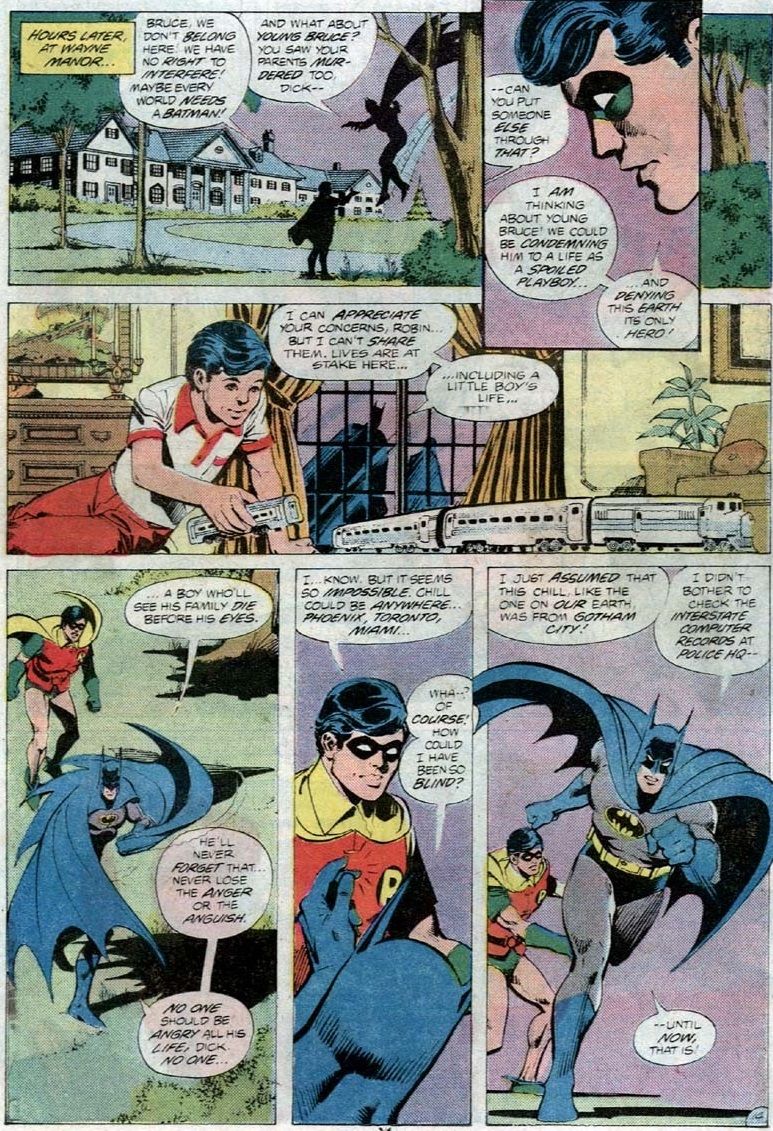
Batman dismisses these concerns of Robin's, but you can tell that it weighs on him, as well. IS it worth it for him to lose his parents if that inspires him to become one of the greatest superheroes in the history of the world? In the end, Batman just can't let this other reality's Bruce Wayne deal with it and so when he has the chance to save the Waynes, he does it...
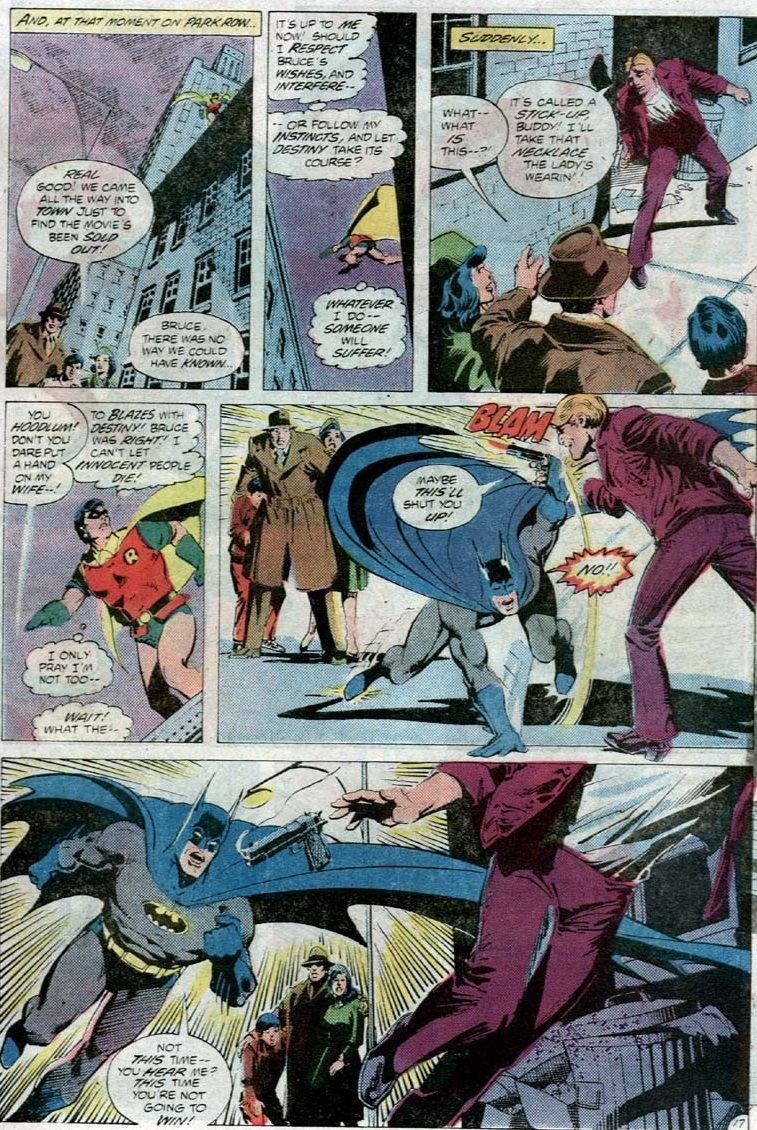
Batman really does get a kick out of saving his parents in this reality. It was a wonderful gift by the Phantom Stranger (by the way, this issue also introduced us to Barbara Kean, the future wife of James Gordon and mother of Barbara Gordon, a character that DC would later say did not count as an original creation by Brennert and Giordano for purposes of character royalties from her appearances on the TV series, Gotham).
However, the big twist occurs in the epilogue, where we see that despite his parents being saved, young Bruce has decided to train to become a superhero ANYways, and thus, Bruce Wayne was not just a superhero based on vengeance, but he was destined to be a hero no matter what!
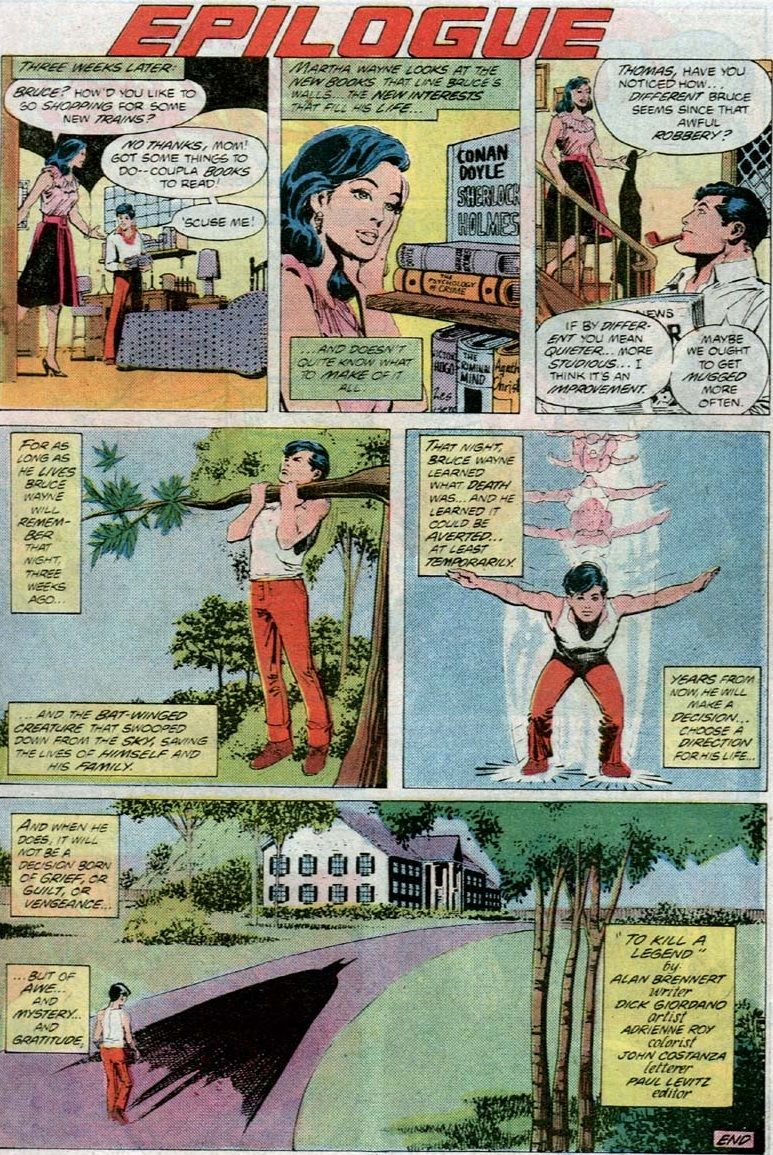
What a great story by Brennert and Giordano.
If anyone else has a suggestion for a future edition of Always Kind of Wondered, drop me a line at brianc@cbr.com!
0 Comments